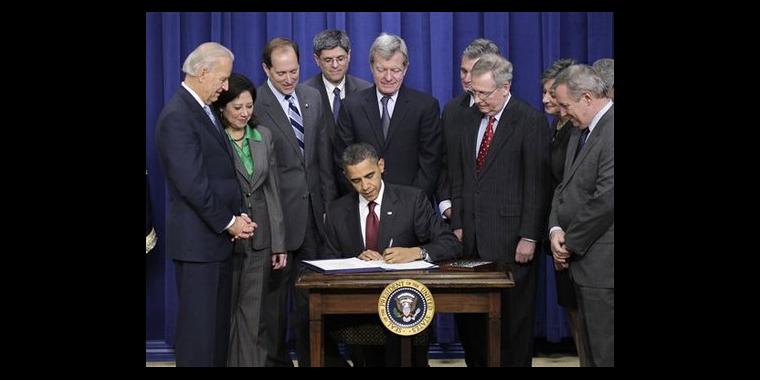
President Signs Tax Agreement into Law; SEC Budget Woes Remain as Continuing Resolution Is Extended
12/20/10: Last week, the President signed into law the “Tax Relief, Unemployment Insurance Reauthorization, and Job Creation Act of 2010.” Meanwhile, the House and Senate also both passed H.J. Res. 105, a short-term stopgap Continuing Resolution (CR) to keep the government running at the agencies’ 2010 levels, until midnight tomorrow, Tuesday, Dec. 21.
As you know, the SEC has been operating under a CR that temporarily extended last year's $1.1 billion agency budget. This has been particularly difficult for the SEC, which has seen its responsibilities increase tremendously with the bigger workload and workforce triggered by the Dodd-Frank financial regulatory reform law. The SEC's budget may be targeted by the new Congress, however, which is unlikely to be friendly to the agency's central mission of regulating the financial markets.
Others see it differently, though. For example, Senator Jack Reed (R.I.), chairman of the Senate subcommittee that oversees the SEC, recently pointed out that tight budgets and employee cuts at the SEC were likely contributors to the agency's strained resources prior to the financial crisis. "We have to be very conscious going forward of designing effective efficient enforcement systems and then putting the resources behind them," he noted.
It is for these reasons that the SEC and NTEU were hopeful that Congress would enact a FY 2011 budget with a specific increase for the agency, or at least a continuing resolution with special funding for the agency. Unfortunately, late last week it became clear that the parties would be unable to reach such an agreement on spending for FY 2011 when Senator Harry Reid (AZ) finally pulled the plug on the Omnibus Spending Bill for FY 2011. Discussions are now ongoing about a longer term CR for the federal government, probably through February or March.
The Union is continuing to fight to ensure that the agency will receive adequate funding and that, in any event, SEC employees still receive the merit pay increase that they already earned during FY 2010, which they were supposed to receive last month. Indeed, with the across-the-board federal pay freeze already in effect for January, if the SEC fails to provide the merit pay increase that was already earned by its employees in 2010, it will be the only agency in the federal government that is also freezing within-grade increases. After several consecutive years of failed human capital policies, including reduced compensation budgets that have spanned the last two administrations, now is not the time to eliminate a modest pay raise that has already been earned by the employees who are working hard at the SEC every day.
In addition to extending the "Bush tax cuts" for two more years, the separate "tax relief" legislation signed by the President on Friday provides a two percent payroll tax cut for employees that pay into and are covered by Social Security, such as workers under the Federal Employees Retirement System (FERS). It is important to note that, initially, the tax law would have excluded FERS employees from receiving this benefit, but NTEU worked with supporters in Congress, including Sen. Akaka (HI), to achieve a correction to the agreement, thus ensuring the tax holiday would apply to FERS employees.
Unfortunately, federal employees under CSRS who do not pay into Social Security will not be provided any benefit under the tax holiday. NTEU believes this unequal treatment of federal employees is unfair, and strongly lobbied Congress to provide either a two percent reduction in employee contributions to CSRS, or some other remedy, in the tax agreement. Like those under FERS, federal workers under CSRS are being called on to endure the first ever two year pay freeze and are also struggling in the face of rising costs. We strongly believe these dedicated workers should have been provided a similar or equivalent benefit as those under FERS.
In addition to the payroll tax holiday, the legislation extends for another year the mass transit benefit of $230 per month which was slated to drop to $120 without congressional action. NTEU strongly supported extension of this important benefit for employees, including federal workers, who use public transportation to and from work. At the SEC, NTEU Chapter 293 is pushing for implementation of the full transit benefit, retroactive to January 2011 if necessary.
As always, thank you to the dues paying members of the Union, without whom you would have no advocate on these important issues in the agency or on the Hill.
